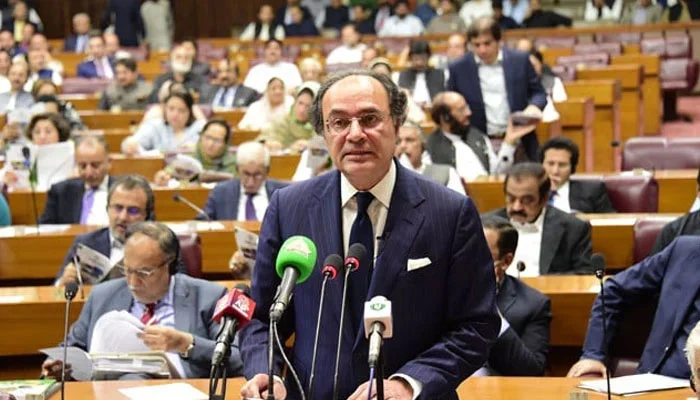Finance Minister Muhammad Aurangzeb has assured that Pakistan will meet its commitments under the International Monetary Fund (IMF) programme without resorting to new taxes, stressing that reforms and dispute resolution will drive revenue growth.
Briefing reporters on Wednesday, the minister said the government is determined to raise the tax-to-GDP ratio to 11 per cent during the current fiscal year, in line with IMF targets. He emphasised that revenue shortfalls would be addressed through alternative measures, including resolution of tax disputes pending in courts, rather than imposing additional levies. “The revenue shortfall will not be met through new taxes,” Aurangzeb said, adding that discussions with the IMF remain constructive and positive.
Aurangzeb also pointed to signs of improving economic stability, citing the repayment of a $500 million Eurobond and plans to issue a Panda Bond by the end of November.
Earlier, while briefing the Senate Standing Committee on Finance, Aurangzeb confirmed that the upcoming federal budget would no longer be drafted by the Federal Board of Revenue (FBR). Instead, the newly established Tax Policy Board under the Ministry of Finance will take charge of policy formulation, while the FBR will focus solely on tax collection. The minister said the board will function year-round to ensure continuous consultations, unlike the past practice of hurried budget talks weeks before presentation.
An advisory body comprising experts and private sector representatives will also be created to assist the Tax Policy Board, though its recommendations will not be binding. Committee members welcomed this separation of tax policy from the FBR, calling it a long-overdue reform.
The Senate session, however, turned heated as senators criticised the FBR’s heavy-handed tactics. One senator remarked, “Tax collection is not done with a Kalashnikov. Treat traders as traders, not like Taliban or terrorists.” Another lawyer accused the FBR of defying presidential directives by challenging Federal Ombudsman rulings in court, despite obligations under the Ombudsman Reforms Act 2013. The Attorney General countered that goods classification disputes fall outside the Ombudsman’s jurisdiction and should be handled by classification committees.
Senator Afnan alleged that the FBR had lodged politically motivated cases against him in the past, which he later won. In response, Inland Revenue Operations Member Hamid Ateeq Sarwar advised that appeals be pursued through legal forums and assured that appellate decisions would be respected.
Other issues also came under discussion, including the pending Virtual Assets Bill. Aurangzeb told senators that the ministry had received 16 queries on the draft law and would submit detailed responses. He stressed that the bill should aim at fostering growth rather than spreading fear.
Separately, Senator Dilawar, a tobacco grower, complained that despite a bumper crop, buyers were unwilling to purchase tobacco even at Rs300 per kilogram. Aurangzeb replied that irregularities in sectors such as tobacco, beverages, and sugar must be dealt with transparently.
Discover more from Brackly News
Subscribe to get the latest posts sent to your email.



